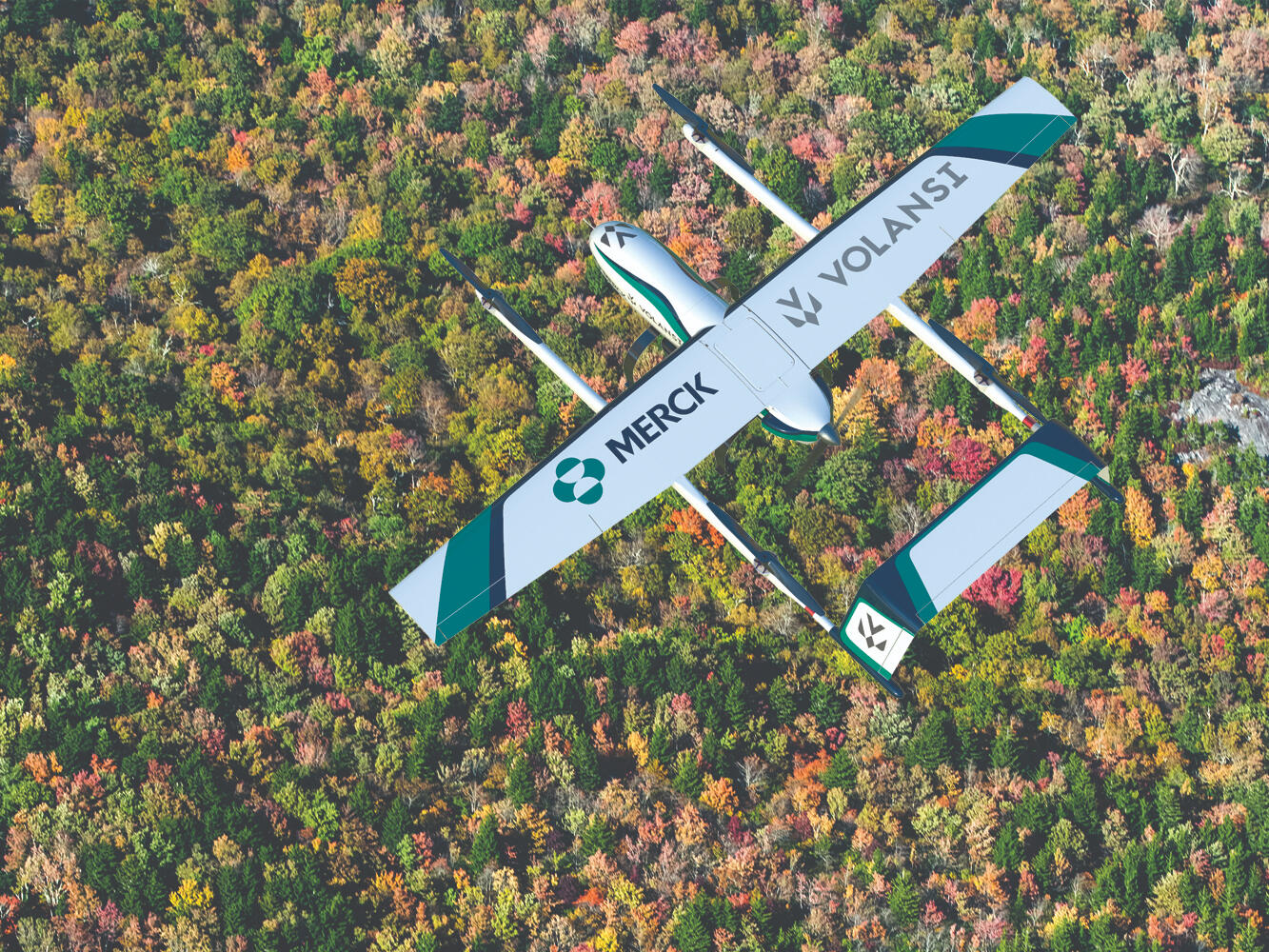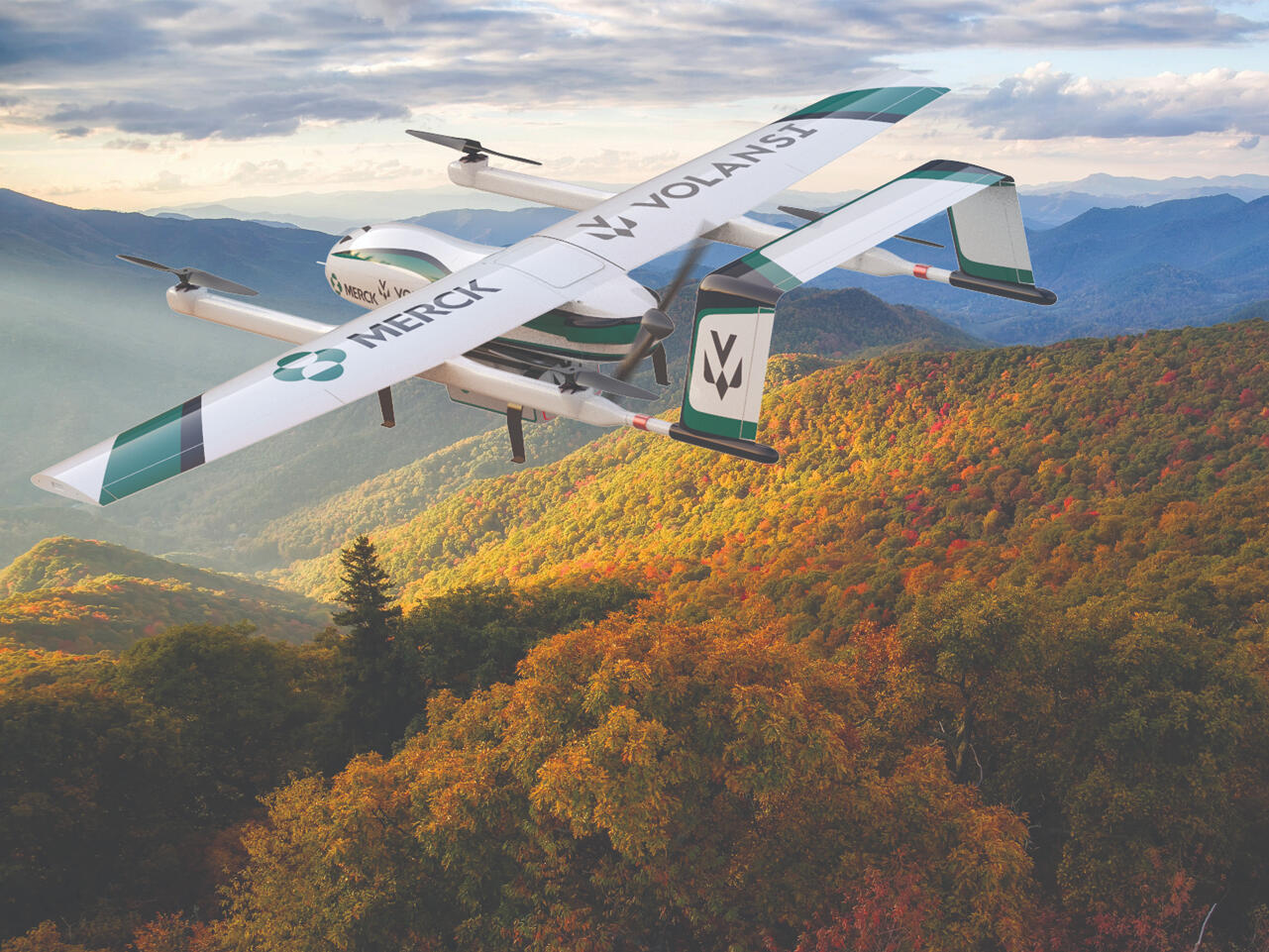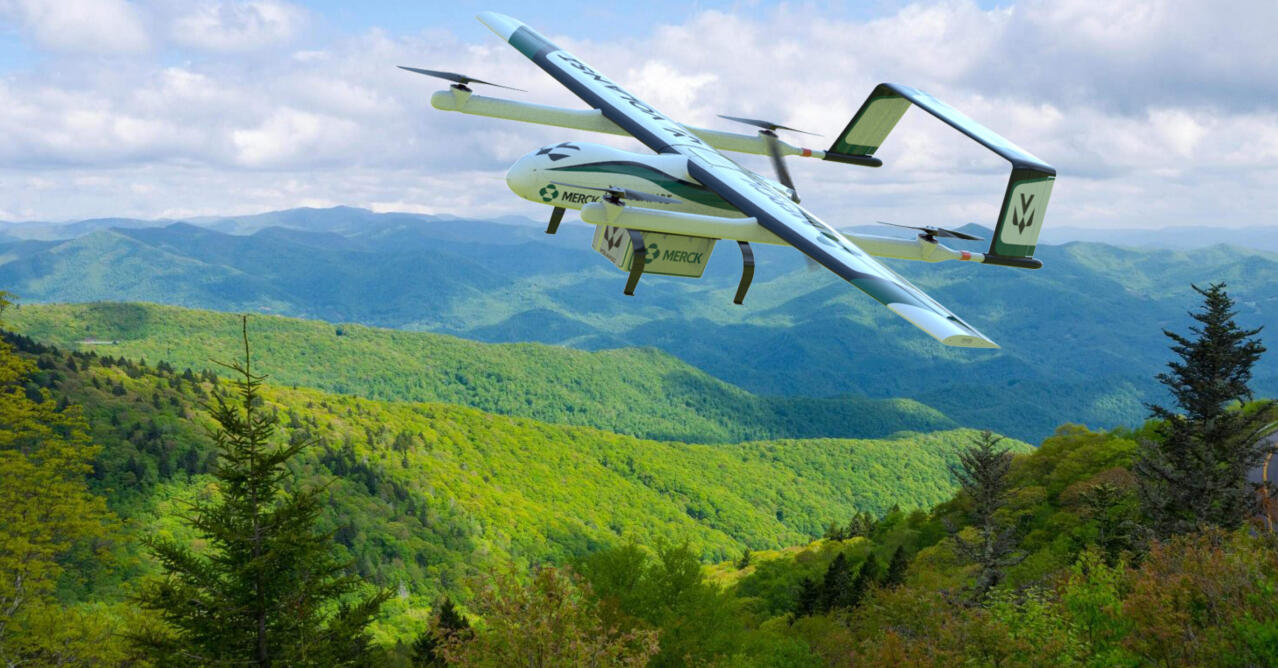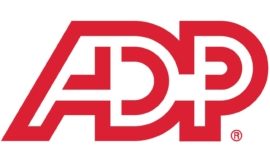The coronavirus vaccine has brought attention to the challenges associated with delivering sensitive medical supplies. These drones could help address logistical challenges in the supply chain.

Image: Volansi
A number of COVID-19 vaccines have been given the regulatory green light and more than 75 million vaccines administered in recent weeks, according to the CDC. While walk-in and drive-thru mass vaccination clinics have helped boost vaccination efforts in urban areas, delivering vaccines—some of which require ultra-cool refrigeration—presents myriad so-called “cold-chain” logistical challenges. One company is using drones to deliver medical supplies to rural parts of North Carolina.
“I don’t think anyone could have predicted or appreciated how difficult temperature control deliveries were until COVID vaccines were front and center for all of us,” said Hannan Parvizian, co-founder and CEO of drone delivery company Volansi.
Volansi has been working with pharmaceutical giant Merck for nearly three years to deliver cold-chain vaccine supplies for disaster relief efforts, Parvizian explained. Volansi’s work started with intralogistics in Puerto Rico following Hurricane Maria before the company launched projects in The Bahamas and in the United States, he said.
In October 2020, Volsani officially announced the launch of a program in North Carolina designed to deliver cold-chain medical supplies to rural parts of the state. Volansi is working with Merck to ship medical supplies directly from the vaccine manufacturer to hospitals, Parvizian said.
SEE: TechRepublic Premium editorial calendar: IT policies, checklists, toolkits, and research for download (TechRepublic Premium)
The project is based on Volsani’s VOLY C10 electric drone which uses a vertical take-off and landing (VTOL) system, and this approach and what the company calls “soft-touch delivery” offers comparative advantages to other flight systems.
“[VTOL] means we don’t have any ground infrastructure for takeoff and recovery, like a catapult or the need for a runway like a fixed-wing plane would. We can take off from a flat spot and land on a flat spot,” Parvizian said.

Image: Volansi
There are a number of companies testing various drone flight and delivery systems, each with their own specific design configuration, takeoff and delivery style.
Rather than delivering the cargo mid-air via parachute or releasing an onboard hook, once Volsani’s drone lands at the delivery location it releases the payload box connected to the craft’s underbelly to protect the cargo, Parvizian said.
Land. Release. Repeat. Hence the name “soft-touch delivery.”
The VOLY C10 series drone has a 10-pound payload capacity and a 50-mile range, according to the company. This lift capacity means the payload can pack ample insulation; a necessary spec design when delivering temperature-sensitive medical supplies.
“The aircraft’s insulated cargo container can maintain a temperature of minus 70 degrees Celsius for up to 96 hours with dry ice or liquid nitrogen, Parvizian said.
With sensitive medical supplies, there’s virtually no margin for error, and elevated temperatures can lead to product spoilage. The payload box boasts a temperature data logger which communicates via cellular networks or LTE, and this allows the company to monitor these readings throughout the flight in real-time, Parvizian said.
Uncrewed delivery vehicles traversing the airways overhead carrying critical medical supplies come with plenty of red tape. Parvizian discussed the FAA’s “crawl, walk, run” approach to the multi-phased project.
“What that means is with each phase you take a different level of risks starting with the least risky type of mission and increasingly adding other elements to it,” Parvizian said.
As part of this ongoing “crawl” phase, the company is working with a number of regulatory partners including the North Carolina Department of Transportation, and has successfully flown one of its drones over a section of highway in the state, according to Parvizian.
SEE: 5 Internet of Things (IoT) innovations (free PDF) (TechRepublic)

Image: Volansi
During these initial flights, Volansi was able to complete the “first drone delivery of temperature-controlled medicines within the U.S.,” according to the company. A fitting pioneering milestone in a state known for being the “first in flight.”
James Pearce, NCDOT Division of Aviation spokesperson, said these aircraft have “tremendous potential to improve supply chains and access to goods and services—not just in medicine but with food, parcels and more.”
“They’re able to overcome logistical challenges, especially in a state like ours with such diverse geography, by reaching their destination ‘as the crow flies’ instead of relying on existing infrastructure,” Pearce said.
Volansi is working with non-COVID-19 vaccines, but Parvizian said the company is in communication with hospitals and other suppliers about potentially shipping COVID-19 vaccines using logistic routes in North Carolina or other states.
“We really think that this is the time to really help society and everyone else with this technology especially considering that we’re all trying to solve the supply chain issues with COVID vaccine distribution, and we’re really happy that we can be part of that solution,” Parvizian said.
Also see
Source of Article




